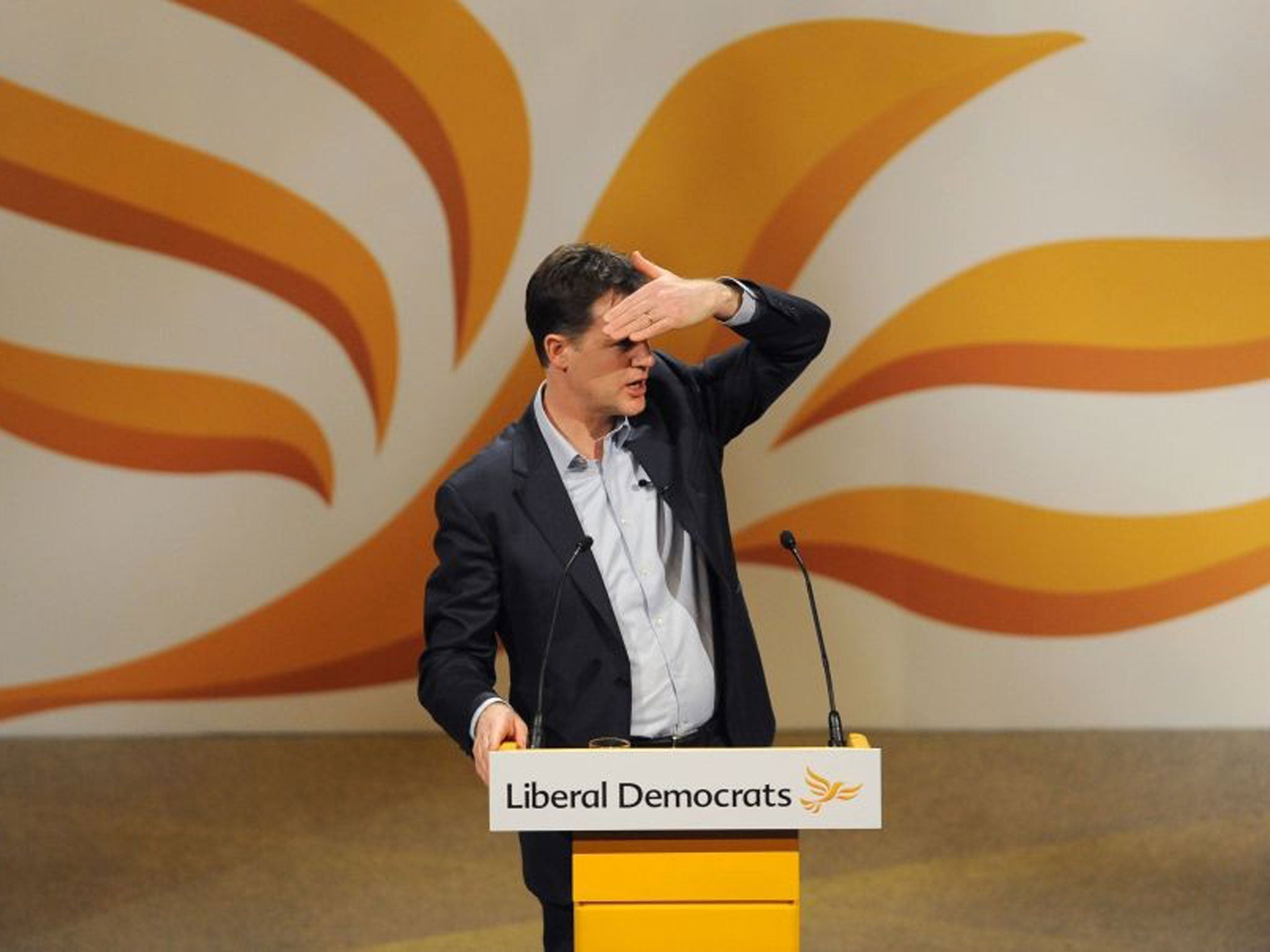Rochester by-election: The Lib Dems knew they would suffer by entering into coalition, but no one imagined it would be this bad
The party has suffered a catastrophic result – and it could all have been avoided


Your support helps us to tell the story
From reproductive rights to climate change to Big Tech, The Independent is on the ground when the story is developing. Whether it's investigating the financials of Elon Musk's pro-Trump PAC or producing our latest documentary, 'The A Word', which shines a light on the American women fighting for reproductive rights, we know how important it is to parse out the facts from the messaging.
At such a critical moment in US history, we need reporters on the ground. Your donation allows us to keep sending journalists to speak to both sides of the story.
The Independent is trusted by Americans across the entire political spectrum. And unlike many other quality news outlets, we choose not to lock Americans out of our reporting and analysis with paywalls. We believe quality journalism should be available to everyone, paid for by those who can afford it.
Your support makes all the difference.Cast your mind back four years to the Downing Street rose garden - the honeymoon of Nick and Dave, and the Lib Dems in power for the first time, depending on how you count it, since 1945, 1922 or 1915. Anyway, it was historic.
This morning they’re historic for another reason – they just polled a mere 0.9 per cent in the Rochester and Strood by-election - the worst-ever result in a by-election for a major party.
Back in 2010, the Lib Dems knew what they were in for, and they soberly entered into their marriage realising there would be some damage. They knew the tuition fees would shred their reputation among students, a very important constituency and one that was symbolised in that brief moment of Cleggmania in the 2010 campaign. They knew the cuts more generally would hurt them in elections. They expected the compromises of power and complications of Government to damage them short-term. They were ready.
But they also hoped that, in time, as the recovery arrived and memories of the tuition fees fiasco faded they would be rehabilitated. They would be seen to have acted in the national interest. They would be credited with rising living standards. People would see that it was they who pushed for the lower-paid – under £10,000 a year – to come out of income tax, a central achievement. They hope, if not to be forgiven, then at least to earn some understanding.
Seems not. The Conservatives are hogging the economic story, and the Lib Dems are increasingly marginalised. The media are interested in the two main parties, with the SNP and Ukip providing the excitement. Even the Greens are muscling in, and in Rochester duly beat the Lib Dems, who didn't come far ahead of the Raving Loonies.
This miserable showing was obviously untypical; it was a classic by-election squeeze, of the type the Lib Dems used to enjoy engineering. The seat wasn’t their usual promising territory, but there was a time when the Lib Dems could realistically dream of taking this sort of seat. Even discounting all the mitigating circumstances it still suggests a meltdown next year, far worse than anything the party has contemplated since 2010.
There is an alternative history, a sort of Charlie Kennedy one. Had Mr Kennedy not fallen from grace, his instinct, I suspect, would have been a “confidence and supply” agreement with the Tories after the hung parliament of 2010. That would have enabled him to still play the populist and win lots of protest votes of the type Ukip and the SNP are garnering now. Tuition fees would not have happened, or if it had the Lib Dems would not be blamed for them.
At the election, which probably would have come sooner rather than later, and certainly earlier than next May, the Lib Dems would have made more gains, including at the expense of Labour. They would have been a really strong, almost equal partner in any fresh coalition, and probably with Labour, more ideologically palatable, and psephelogically logical partners than the Tories (the Lib Dems traditional enemy and the people they have to beat to hold the great majority of their seats).
As it is, the nice hope that a much denuded Lib Dem response in the Commons next time will still hold the balance of power seems just that; there will be many minority parties next time, and the Lib Dems could easily find themselves back to where they were decades ago, in irrelevance. What an ungrateful nation.
Join our commenting forum
Join thought-provoking conversations, follow other Independent readers and see their replies
Comments